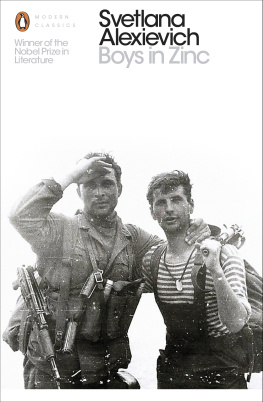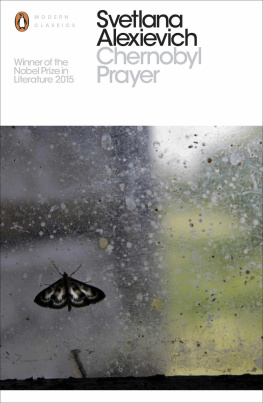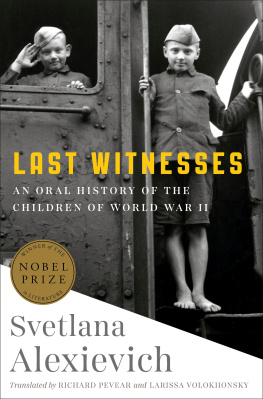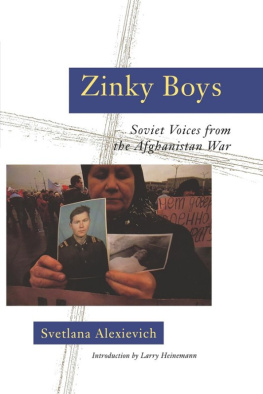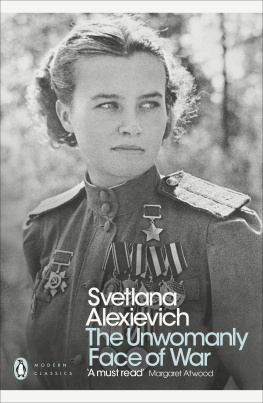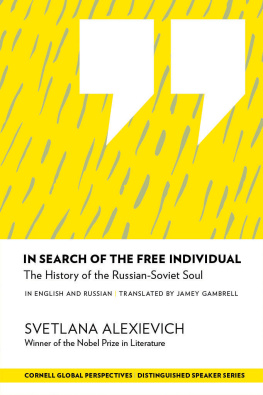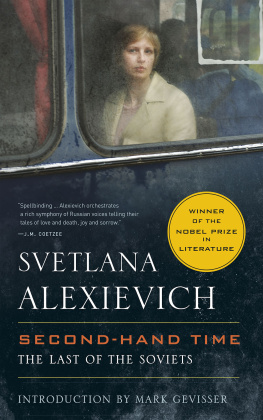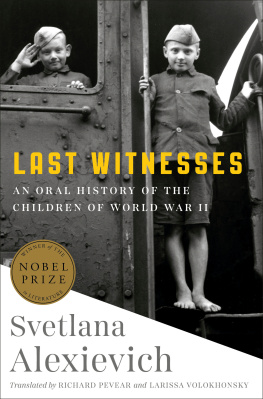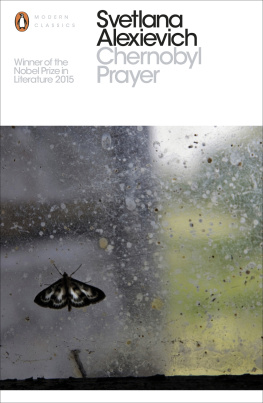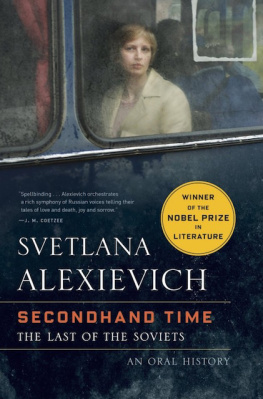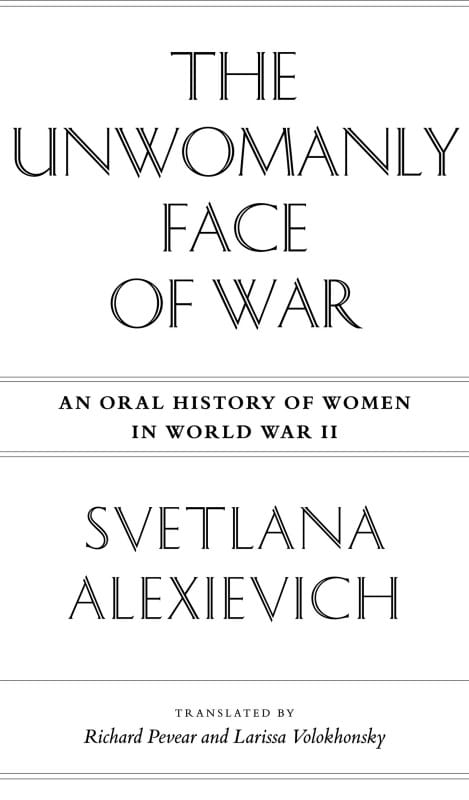Svetlana Alexievich - The Unwomanly Face of War: An Oral History of Women in World War II
Here you can read online Svetlana Alexievich - The Unwomanly Face of War: An Oral History of Women in World War II full text of the book (entire story) in english for free. Download pdf and epub, get meaning, cover and reviews about this ebook. year: 2017, publisher: Random House, genre: History. Description of the work, (preface) as well as reviews are available. Best literature library LitArk.com created for fans of good reading and offers a wide selection of genres:
Romance novel
Science fiction
Adventure
Detective
Science
History
Home and family
Prose
Art
Politics
Computer
Non-fiction
Religion
Business
Children
Humor
Choose a favorite category and find really read worthwhile books. Enjoy immersion in the world of imagination, feel the emotions of the characters or learn something new for yourself, make an fascinating discovery.
- Book:The Unwomanly Face of War: An Oral History of Women in World War II
- Author:
- Publisher:Random House
- Genre:
- Year:2017
- Rating:5 / 5
- Favourites:Add to favourites
- Your mark:
The Unwomanly Face of War: An Oral History of Women in World War II: summary, description and annotation
We offer to read an annotation, description, summary or preface (depends on what the author of the book "The Unwomanly Face of War: An Oral History of Women in World War II" wrote himself). If you haven't found the necessary information about the book — write in the comments, we will try to find it.
A landmark.Timothy Snyder, author of On Tyranny: Twenty Lessons from the Twentieth Century
For more than three decades, Svetlana Alexievich has been the memory and conscience of the twentieth century. When the Swedish Academy awarded her the Nobel Prize, it cited her invention of a new kind of literary genre, describing her work as a history of emotions . . . a history of the soul.
In The Unwomanly Face of War, Alexievich chronicles the experiences of the Soviet women who fought on the front lines, on the home front, and in the occupied territories. These womenmore than a million in totalwere nurses and doctors, pilots, tank drivers, machine-gunners, and snipers. They battled alongside men, and yet, after the victory, their efforts and sacrifices were forgotten.
Alexievich traveled thousands of miles and visited more than a hundred towns to record these womens stories. Together, this symphony of voices reveals a different aspect of the warthe everyday details of life in combat left out of the official histories.
Translated by the renowned Richard Pevear and Larissa Volokhonsky, The Unwomanly Face of War is a powerful and poignant account of the central conflict of the twentieth century, a kaleidoscopic portrait of the human side of war.
But why? I asked myself more than once. Why, having stood up for and held their own place in a once absolutely male world, have women not stood up for their history? Their words and feelings? They did not believe themselves. A whole world is hidden from us. Their war remains unknown . . . I want to write the history of that war. A womens history.Svetlana Alexievich
THE WINNER OF THE NOBEL PRIZE IN LITERATURE
for her polyphonic writings, a monument to suffering and courage in our time.
A monument to courage . . . It would be hard to find a book that feels more important or original. . . . Alexievichs account of the second world war as seen through the eyes of hundreds of women is an extraordinary thing. . . . Her achievement is as breathtaking as the experiences of these women are awe-inspiring.The Guardian
Magnificent . . . Alexievich charts an extraordinary event through intimate interviews with its ordinary witnesses. . . . After decades of the war being remembered by men writing about men, she aims to give voice to an aging generation of women who found themselves dismissed not just as storytellers but also as veterans, mothers and even potential wives. . . . Distilling her interviews into immersive monologues, Alexievich presents less a straightforward oral history of World War II than a literary excavation of memory itself.The New York Times Book Review
A remarkable project . . . Women did everythingthis book reminds and reveals. They learned to pilot planes and drop bombs, to shoot targets from great distances. . . . Alexievich has turned their voices into historys psalm.The Boston Globe
Harrowing and moving . . . Alexievich did an enormous service, recovering these stories. . . . The Unwomanly Face of War tells the story of these forgotten women, and its great achievement is that it gives credit to their contribution but also to the hell they endured.TheWashington Post
Svetlana Alexievich: author's other books
Who wrote The Unwomanly Face of War: An Oral History of Women in World War II? Find out the surname, the name of the author of the book and a list of all author's works by series.


